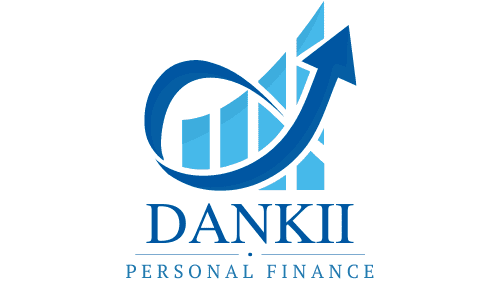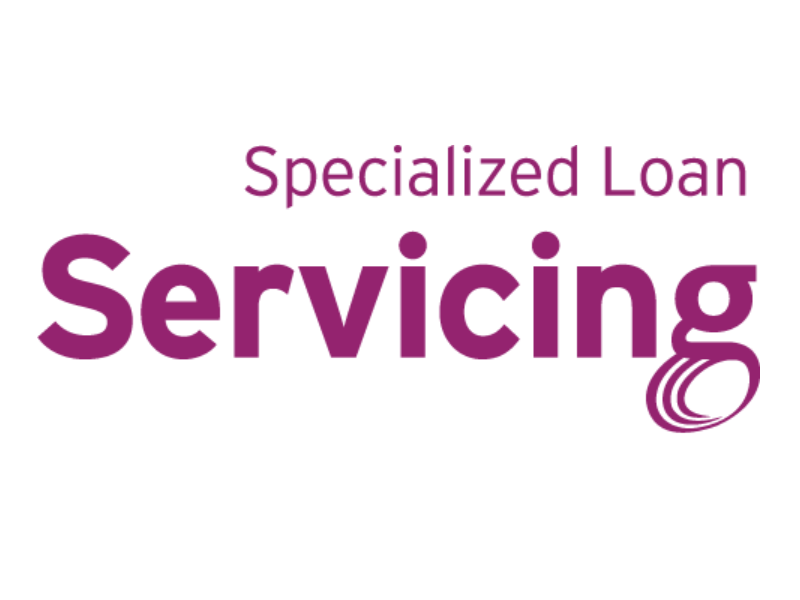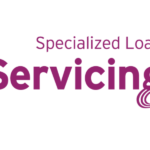How to Handle Unifin Debt Collector Calls and Notices

Dealing with agencies like Unifin can stress you out but debt collection can also be stressful, for example. Read on in this article to understand how Unifin Debt Collector is working and the way you can respond to their calls or notices. You need to know your rights and what to do when a debt collector contacts you. Here’s how to break it down (even for an 8th grader).
Who is Unifin Debt Collector?
Unifin is a company that collects the debts of other businesses which go unpaid. If you can’t pay a bill or loan, your lender may hire Unifin to recover it. Unifin contacts you via phone to book for payment. Mostly they take care of debts for credit cards, loans and medical bills. They really get their job to get back the money you owe.
How Does Unifin Contact You?
Unifin can get in touch with you in multiple ways. They can send letters, email you, or simply call you directly. Sometimes you might even get messages via text or in social media. But their main goal is to reach you and request for payment. Yet there are laws that prevent you from being harassed by debt collectors.
What Rights Do You Have?
Of course, it’s important to make sure you’re dealing with something like Unifin if they’re debt collectors, that you have rights. The Fair Debt Collection Practices Act (FDCPA) protects consumers from unfair treatment by a debt collector. Here are a few rights you should know about:
- Limited Contact Hours: You can only be contacted by a debt collector between 8 a.m. and 9 p.m.
- No Harassment: They couldn’t make rude comments or bully you.
- Verification of Debt: You can also ask Unifin to deliver proof of debt but, unfortunately, the proof of debt is not delivered in most instances.
- No Contact at Work: If you tell them not to, then they have to not contact you at work.
- Knowing your rights when you get a call from a debt collector can allow you to sound out your interest and compassion, and not feel overwhelmed.
If Unifin calls you, What should you do?
What is most important is that Unifin contacts you and that you stay cool and handle things with care. Here are the steps you should follow:
- Don’t Ignore Them: Don’t ignore debt collectors, which makes things worse. If you can’t pay immediately, answer their contact.
- Verify the Debt: You’ll get demand someone show you proof the debt belongs to you. It helps to make sure that they’re not contacting you by mistake.
- Know Your Rights: You know now, you have the rights. Law should be followed by Unifin.
- Negotiate if Possible: If you cannot pay, work out a payment plan you can live with.
- Keep Records: Document all of it, and interact with Unifin in bitbucket. Note phone call, email and letter.
How to Verify Your Debt?
Very important step is to verify your debt. Don’t just believe the debt collector when they say they’re going to file. Here’s how you can do it:
- Request a Debt Validation Letter: This is a letter that details the amount owed and the original creditor that this debt is related to in this debt.
- Check Your Records: Check to see if the debt line up with what Unifin says they are owed.
- Dispute If Necessary: If you don’t think it’s yours or turned out to be wrong, dispute it. You have 30 days of their initial contact to send them a written letter.
Negotiating with Unifin:
Negotiating is also an option if you can’t pay the full amount, but if this debt is yours. Partly in desperation, debt collectors often settle for less than the original amount owed. Here’s how you can negotiate:
- Offer a Lump Sum: If you have some savings, give them a one time lump sum payment for a reduced total. This might be acceptable to get the account closed quickly by debt collectors.
- Set Up a Payment Plan: Unifin can work out a monthly payment plan that makes sense for your budget if they’re not able to arrange a lump sum amount.
- Get Everything in Writing: Before giving out payments ensure that the deal is put in writing.
If you ignore Unifin, what happens to you?
Ignoring Unifin or any debt collector will mean you’ll face serious consequences. Here’s what might happen if you don’t respond:
- Credit Damage: If you don’t pay off debts, it will be reported to credit bureaus that can lower your credit score.
- Lawsuits: There are situations in which the debt collector will sue you for the money. It can result in wage garnishment or sweeps from your bank account.
- Higher Fees and Interest: Once you ignore the debt, you will begin receiving additional fees and interest and the amount you owe will grow.
So rather than ignoring it, ignore communication and start trying to resolve the debt.
What Does Debt Collection Do to the Credit Score?
Sending unpaid debts to the credit bureaus can also hurt your credit score if you have a debt collector like Unifin report it. A low credit score can mean you won’t be able to get loans, credit cards, or even rent an apartment. Here’s how unpaid debts impact your credit:
- Long-Term Impact: How long can a collection account stay on your credit report?
- Lower Scores: A collection can drop your credit score down to the point where you can’t qualify for loans.
How to remove a collection from your credit report?
The debt will remain on your credit report for years if Unifin reports your debt to a credit bureau. However, there are ways to remove it if the debt is resolved:
- Pay for Delete: Unifin will allow you to bargain the collection exclusion from your credit report in exchange for payment. Make this agreement in writing.
- Dispute Incorrect Information: In case the debt is invalid you can challenge the collection with the credit bureau. However, if the information is incorrect they will remove it from your report.
Should you hire a Debt Settlement Company?
Some people will hire debt settlement companies to deal with collectors like Unifin. They include these companies and negotiate on your behalf to lower the amount owed. However, there are risks involved:
- High Fees: High fees charged by debt settlement companies can mean that your financial burden will actually increase.
- No Guarantee: You can’t be certain that the debt settlement company will actually go about reducing your debt.
- Credit Score Damage: But these companies may advise you to stop making payments, hurting your credit score further, while they negotiate.
Before you hire a debt settlement company, consider the pros and the cons of doing it yourself.
Conclusion regarding Dealing with Unifin Debt Collector
It can be overwhelming dealing with Unifin debt collectors, but you can deal with them. So how do you resolve your debt issues? Knowing your rights, verifying your debt and negotiating a settlement are three key steps to resolving debt problems. Ignoring debt collectors is only going to result in more debt, so do something now to save your financial life.
Unifin Debt Collector FAQs:
Q1: Who is Unifin Debt Collector?
A: If you cannot settle your debt to a business you are speaking with an Unifin Debt Collector, a debt collection agency working on behalf of your business. They might possibly collect other debts like credit card, medical bills, loans or unpaid accounts.
Q2: How does Unifin contact me?
A: Unifin can reach you through phone calls, letters, emails, text messages or social media. They want to tell you about your debt and have you pay.
Q3: Should I get a call from Unifin?
A: Don’t ignore if Unifin contacts you. Look up this debt and see if your rights are standing up, and if necessary, negotiate a payment plan. Record every communication you have.
Q4: I wonder how the debt is mine?
A: Unifin can validate your debt and provide you with a debt validation letter. This letter contains amount due, original creditor as well as other relevant information.
Q5: Can Unifin nickname and acidly call and letter me?
A: No. Under the Fair Debt Collection Practices Act (FDCPA) Unifin cannot harass or threaten you. They’ll also only be able to contact with you between the hours of 8 am to 9 pm. You can report if they step out of line.
Q6: If I can ignore Unifin, what should happen?
A: Forgetting about Unifin can result in bad experiences, including a worsened credit score, more charges, and even using a file a lawsuit. On the other hand, it’s always better to respond and try to resolve the problem.
Q7: Can Unifin be held responsible if my debt reports to credit bureaus?
A: Yes. Unifin can transfer unpaid debts to credit bureaus, lowering your credit score as well. A bad mark can sit on your credit report as long as seven years.
Q8: My proposal to Unifin is for a settlement.
A: Yes. Unifin is willing to negotiate to pay your debt off in a lump sum amount less than the total amount you are owing. A lump sum payment, or a payment plan, is what you can offer. Before making payments, make sure you get any agreement written down.
Q9: ‘Read this post to learn what “Pay for Delete” is and how it works.’
A: “Pay for Delete” is a term for when you attempt to negotiate with a collection to pay the debt and have them remove the collection from your credit report in exchange. Make sure it’s in writing if they agree, then pay once the agreement is in place.
Q10: Is it possible for me to dispute a debt with Unifin?
A: Of course, if you state the debt is incorrect or does not belong to you, you can dispute it. If you materialize a written dispute within the thirty day window from the day Unifin initially contacts you. They have to stop collection efforts if they can’t verify the debt.
Q11: Should I use a Unifin debt settlement company for my Collection Account?
A: You can hire a debt settlement company and many do — but it’s not always the best choice. You will be charged by these companies with high fees and no guarantees of results. It might be best for you to negotiate directly with Unifin.
Q12: What does dealing with Unifin do to my credit score?
A: Pay it off, or even settle the debt, and that collection account may stay on your credit report for up to seven years. But paying off the debt won’t damage your credit score any further.







Budget Suites of America - Personal Finance
14th Oct 2024[…] How to Handle Unifin Debt Collector Calls and Notices […]